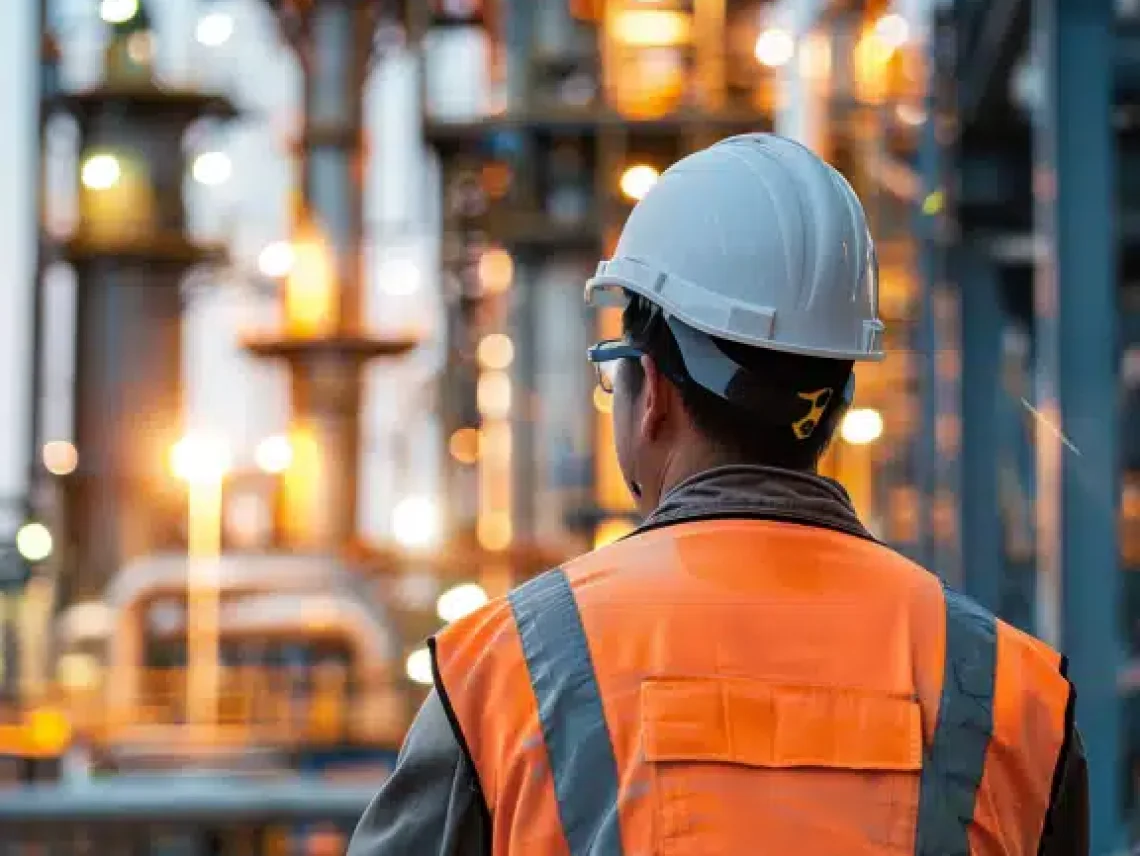Understanding the Value of ASME in Engineering and Safety Standards

Table of Contents
ToggleEnhancing Safety and Quality in Engineering Projects
Safety and quality aren’t simply regulatory necessities; rather, they’re our moral compass. In fact, ASME certification is a badge of honor, signifying that our products and methods undergo the very best scrutiny. Therefore, it’s a reassurance to you that choosing Red River means deciding on an accomplice dedicated to excellence.
ASME Certification Process: What You Need to Know
The journey to ASME certification is rigorous, as it requires meticulous design evaluation, material testing, and inspection procedures. At the same time, it demands an unwavering commitment to precision. That’s why at Red River, we navigate this adventure with care and dedication, ensuring that every product we supply isn’t just compliant but truly exemplary.
How ASME Certification Boosts Your Career in Engineering
For our clients and their tasks, ASME certification is not just about meeting demand; instead, it serves as a competitive edge. More importantly, it indicates a dedication to safety and quality that enhances both your projects and your reputation. By partnering with an ASME-certified manufacturer like Red River, you propel your projects to the vanguard of engineering excellence.
Need a reliable partner?
FAQ: Understanding ASME and Pressure Vessel Manufacturing
Why is ASME certification taken into consideration crucial for pressure vessels?
The ASME certification isn’t only a badge of honor; rather, it’s a rigorous standard that ensures pressure vessels are designed, fabricated, examined, and inspected to meet both high safety and quality benchmarks. This is particularly important because it signifies that a pressure vessel can properly withstand operational pressures and temperatures. As a result, it minimizes the risk of catastrophic failures, which could lead to loss of life, extensive property damage, and environmental harm. Moreover, ASME’s requirements are recognized globally, making certified vessels universally accepted across various industries and countries.
How does ASME certification affect the cost and timeline of pressure vessel initiatives?
While obtaining ASME certification for a pressure vessel project may at first seem to increase both cost and timeline due to stringent requirements for design, testing, and documentation, in the long run, it results in significant financial savings and operational efficiencies. For instance, certified vessels are far less likely to fail, reducing downtime and repair costs. Additionally, the rigorous design and production process leads to more efficient operations and lower maintenance expenses. From a scheduling perspective, the upfront investment in time ensures that projects comply with the highest safety standards, thus preventing delays caused by regulatory compliance issues or failures in the field.
Can non-ASME licensed vessels be utilized in commercial programs?
The use of non-ASME-certified vessels in industrial applications is highly regulated and, in many cases, discouraged due to potential safety risks. In certain circumstances, some jurisdictions and industries may allow their use under unique conditions. However, these vessels are generally not preferred for critical or high-pressure applications. Furthermore, the absence of certification can create difficulties in obtaining insurance coverage and meeting assembly regulations. Consequently, this often restricts both the operational scope and geographical deployment of such vessels.
What are the key differences between ASME Section VIII Divisions 1, 2, and three?
ASME Section VIII of the Boiler and Pressure Vessel Code is split into 3 divisions, every catering to distinct design, fabrication, and inspection criteria based totally on the pressure, temperature, and threat level of the utility. Division 1 is the most commonly used, providing recommendations for the layout and fabrication of pressure vessels with specific boundaries on layout pressure and temperature. Division 2 gives more rigorous necessities for better pressure and temperature applications, taking into account greater advanced design methodologies and substances. Division 3 is adapted for extraordinarily excessive-pressure vessels, along with those used in the petrochemical enterprise for gasoline storage and transportation, requiring the most stringent design, fabrication, and trying-out standards.
How does ASME certification gain the give-up person of a pressure vessel?
ASME certification advantages the end person by supplying a guarantee that the pressure vessel they are making use of has been manufactured to the very best standards of protection and satisfaction. This warranty comes from the understanding that the vessel has gone through rigorous layout reviews, material testing, and inspections. For the cease person, this indicates a decreased danger of operational failures, better performance and reliability, and compliance with regulatory necessities, which may cause decreased insurance charges. Additionally, certified vessels regularly come with better manufacturer assistance and documentation, facilitating less difficult protection and compliance during the vessel’s operational existence.
Table of Contents
ToggleRelated Blog Post
- Can you join ASME?
- Is ASME mandatory?
- What does ASME mean in welding?
- What does ASME standards stand for?
- What is ASME IX welding qualification?
- How do I know if my welder is certified?
- What is difference between ASTM and ASME?
- What is the highest certificate in welding?
- What are the four main types of welding certifications?
- How long is an ASME welding certification good for?
Solutions
In the realm of industrial solutions, Red River emerges as a pioneer, offering a diverse range of custom-engineered products and facilities. Among our specialties is the design and production of Custom/OEM Pressure Vessels, meticulously crafted to meet individual client requirements, ensuring performance under various pressure conditions. Our expertise extends to the domain of prefabrication, where Red River leads with distinction.
The company excels in creating prefabricated facilities, modules, and packages, reinforcing its stance as a forerunner in innovation and quality. This proficiency is further mirrored in their Modular Skids offering, where they provide an array of Modular Fabricated Skid Packages and Packaged equipment. Each piece is tailored to client specifications, underlining their commitment to delivering precision and excellence in every project they undertake.
